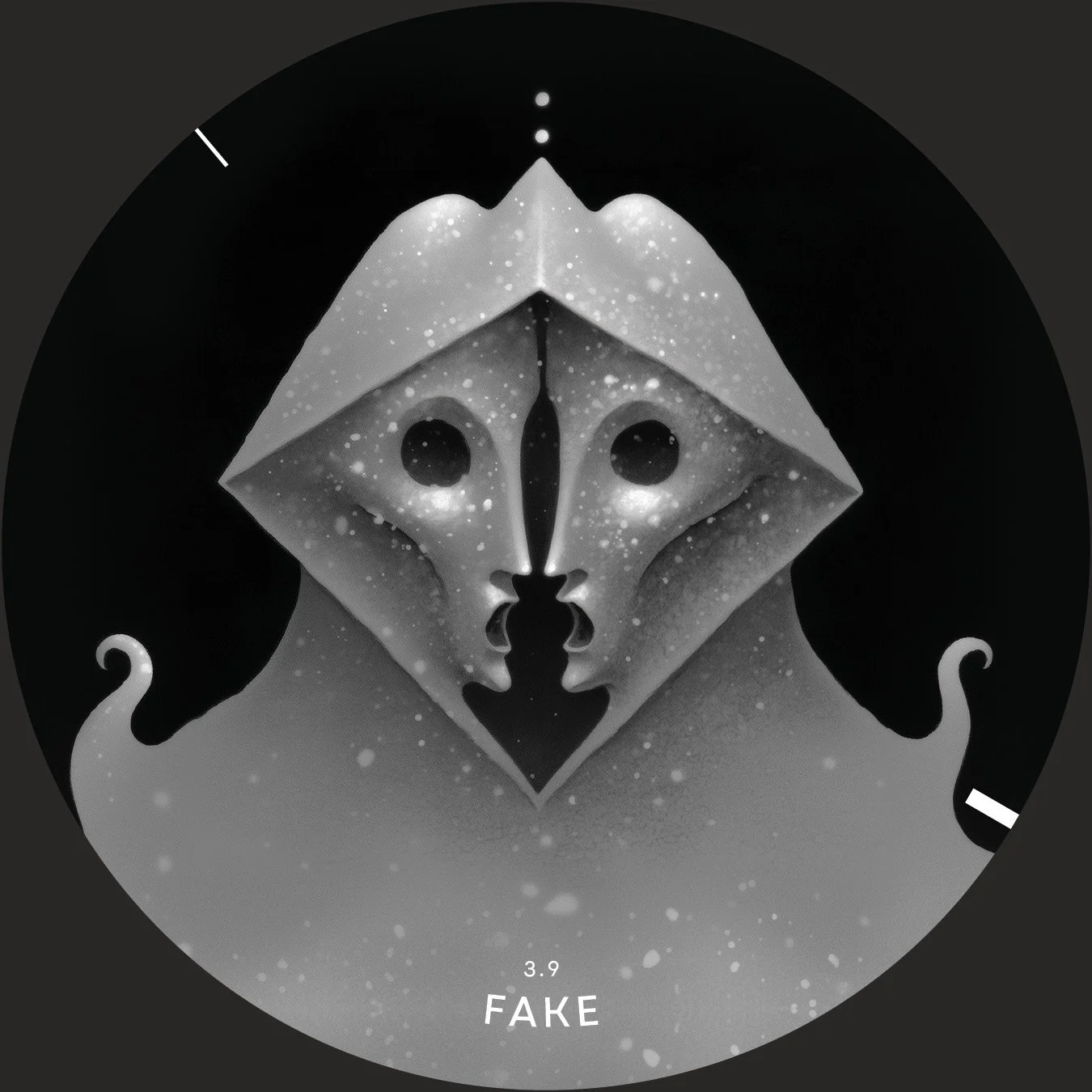Fake > Shape Shifter
fake
of unknown origin; attested in London criminal slang as adjective (1775, "counterfeit"), verb (1812, "to rob"), and noun (1851, "a swindle;" of persons 1888, "a swindler"), but probably older. A likely source is feague "to spruce up by artificial means," from German fegen "polish, sweep," also "to clear out, plunder" in colloquial use. "Much of our early thieves' slang is Ger. or Du., and dates from the Thirty Years' War" [Weekley]. Or it may be from Latin facere "to do." Century Dictionary notes that "thieves' slang is shifting and has no history."
The nautical word meaning "one of the windings of a cable or hawser in a coil" probably is unrelated, from Swedish veck "a fold." As a verb, "to feign, simulate" from 1941. To fake it is from 1915, jazz slang; to fake (someone) out is from 1940s, originally in sports. Related: Faked; fakes; faking.
The jazz musician's fake book is attested from 1951. Fake news "journalism that is deliberately misleading" is attested from 1894; popularized in the 2016 U.S. presidential campaign.
Thieves’ cant or flash is the secret slang used by professional criminals in Britain from the sixteenth through the nineteenth centuries. Built on coded words, rhyming ruses, and disguised grammar, it let pickpockets, highwaymen, and fences talk business in public without being understood by constables or victims. Some of its terms—swag (stolen goods), squeak (to inform), and fake (counterfeit)—leaked into ordinary slang and survive today.
At that time, the big-money crime of the moment was forgery—altering bills of exchange, shipping papers, and Bank of England notes. In March 1775, the city papers exploded with coverage of the Perreau–Rudd forgery scandal, a sensational case built on expertly faked bonds and signatures.
The exact phrase “fake news” was already in circulation by 1894, coined during the cut-throat newspaper wars of America’s yellow-journalism era. Editors used it as a blunt label for the sensational, wholly invented stories rival papers printed to grab street sales—like the 1890 wire report accusing the New-York World of faking a presidential interview. In that heated market of exaggerated scoops and circulation stunts, “fake news” entered public vocabulary as a charge of deliberate journalistic fraud rather than the broader political weapon it would become a century later.
In 1915, “fake it” surfaced in American jazz slang, meaning to improvise a passage when you don’t know the score. The phrase was born in the communal, high-pressure world of dance-hall bands: a musician who hadn’t rehearsed the chart would “fake” the chords, hoping no one noticed. Within a decade, the idiom slipped off the bandstand and into everyday speech, widening into the familiar sense of pretending competence or confidence you don’t yet possess.
The following word doesn’t come up much in conversation anymore, but has a fascinating history that’s more specific to a counterfeit person rather than an action or object.
changeling(n.)
1550s, "one given to change," from change (n.) + diminutive suffix -ling. The meaning "person or thing left in place of one secretly taken" is from 1560s; the specific reference to an infant or young child (usually stupid, strange, or ugly) superstitiously believed to have been left by the faeries in place of a beautiful or charming one they have stolen away is from 1580s. An earlier word for it was oaf or auf.
The changeling legend is a pan-European folklore motif, but its deepest roots lie in medieval Gaelic and Germanic lore. In these traditions, fairies, elves, or trolls were believed to kidnap human infants and leave a substitute—often a sickly or deformed fairy child, a “stock,” or an enchanted piece of wood—in the cradle. The tale spread across Britain, Ireland, Scandinavia, and the Low Countries, later absorbing Christian interpretations that cast the swap as demonic rather than fairy work. By the sixteenth century, the story had become a common explanation for childhood illness, disability, or failure to thrive.
Could you imagine what it would be like to group up with a disability and have some of your community or even family suspect you were of the devil? Just wow, our ancestors went through a lot. It gives a whole other perspective on how far we’ve evolved.

